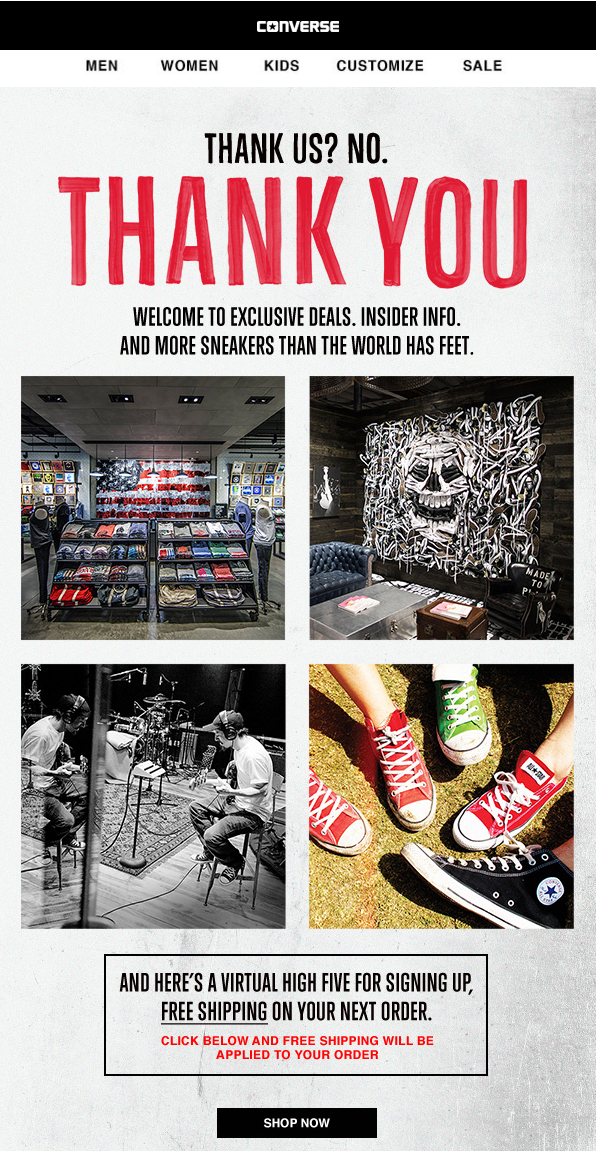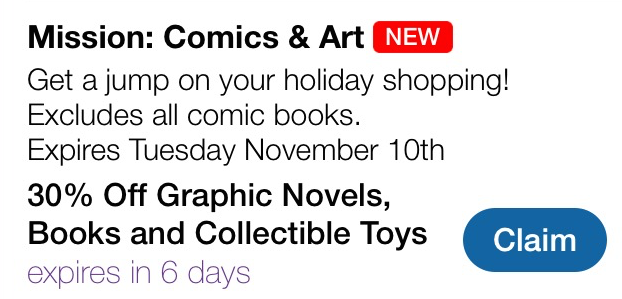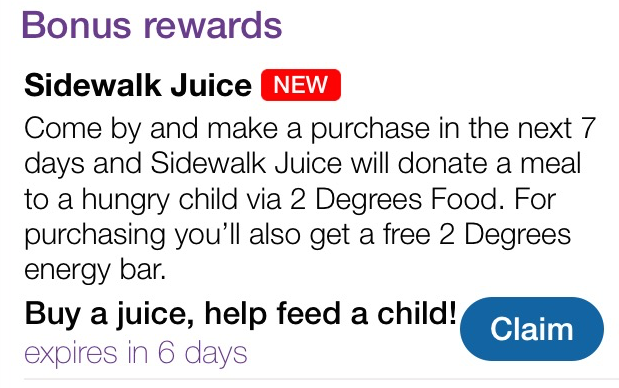Click Here for Original Content
By: Lisa Furgison
How do you tell your customers about upcoming sales or offers? You need to write a promotion! Whether you text, email, post on social, or even skywrite them, you need some writing skills to create can’t-resist promotions.
For many business owners and employees, writing isn’t a strong suit. In fact, it’s estimated thatemployers spend $3.1 billion each year on remedial training to help employees write.
Rather than coughing up big bucks, we’ve created a list of six copywriting tips you can use to write your next promotion:
1. Focus on the customer
When you’re writing, choose your words wisely. You want the promotion to focus on the customer. Tell them what they’ll get out of it, and how to take advantage of it.
Be conversational and use words your customers relate to and would use. Emphasize “you” rather than “we.” Also highlight benefits or customer satisfaction rather than features, and services rather than employee accolades. Phrases like, “Starting today, you get 50% percent off everything in the store to celebrate the New Year,” sounds better than, “We’re having a sale on all commercial wares.”
Tools
- Want to make sure you avoid clichés or tacky jargon? Use Unsuckit to “de-douche” overly used phrases and words.
- Analyze the emotional effect your headlines or subject lines have on readers by using The Emotional Marketing Value Headline Analyzer.
Here’s a well-written email promotion from Converse. Notice its conversational tone, the use of “you” and explanation of what the customer gets.

2. Focus on one (attention-grabbing) point
You don’t have a lot of time to grab a customer’s attention. One study suggests humans have an attention span of eight seconds. Goldfish have longer attentions spans. So, when you create a promotion, stick to one point and one point only (and make it interesting).
If you create an email, text, or social announcement for a promotion, make sure you provide details only relevant to that sale. It may be tempting to cram a lot of great information into one email or text, but resist the urge to promote additional events, happy hours, social media competitions, etc. Purely focus on your promotion and what people will get/benefit from it.
Tool: Because attention spans are short, a catchy subject line is vital. Use CoSchedule’s Headline Analyzer to determine how common, uncommon, emotional or powerful your subject line (or one-liner for text message marketing) is:
3. Keep it short
The length of your promotion depends on the delivery method. There are dozens of ways to reach your customers in the digital age, so you’ll want to tailor the length of your message to that deliver system.
But how do you know how long each message should be? Here’s a great infographic that showcases the optimum length for everything online. For example, email subject lines should be 28-39 characters and Tweets should be 71-100 characters. Use it as a guide to make sure your promotions are brief.
Tools
- Use a tool like WordCounter to count and rank word frequency.
- Pinpoint and breakdown complex sentences, identify common errors or adverbs (to replace with powerful verbs), and more with The Hemingway Editor.
Here’s an example of a brief text promotion. It’s clear and to the point.

4. Write the 3 Ds
Every promotion needs the three D’s: description, details and deadline.
Go beyond basic promotions like, “Come in and get 50% off today” and be more descriptive. Provide the details of the promotion, like what it’s for and what customers stand to gain. Provide a deadline, too. Tell customers when the promotion starts and stops.
Take a look at the examples below. Which one is better?
- Example #1: Come in and receive 50% off a massage.
- Example 2: Enjoy a relaxing stone massage for half the regular price, today and tomorrow only.
The second example is better because its descriptive, offers specific details about the promotion and gives customers a deadline.
Here are two great loyalty program promotion examples from local San Francisco businesses,Mission: Comics & Art and Sidewalk Juice

5. Write an urgent call to action
Every promotion needs a strong call to action. It should explain what the customer should do next and you should be able to sum up the call to action in 2-6 words that create a sense of urgency. For example, “Shop Today and Earn Double Points,” or “Claim Your Coupon Now” are both active and urgent.
Here’s a quick list of calls to action you can borrow:
- Redeem Your Reward Today
- Snag Your Free XX
- RSVP Now
- Check Out Gift Guides
- Sign Up Today and Earn Double Points (good for loyalty programs)
- Claim Your 50% Off Coupon
- Bring in a Friend, Get 50% Off
- Claim Your Gift Today
- See New Products Now
- Shop Today and Earn 10 Points
- Buy X today, and help a child in need (great from philanthropy-related promotions)
- Jump on this deal
6. Proofread it, twice
You don’t want to send a promotion with a grammatical error, typo or punctuation issue. Make sure you read your promotions at least twice to spot errors. If you have an extra set of eyes in the office, have that person read it quickly.
Tool: You should use resources like spell check, but tools like Grammarly are worth a try too. This free tool checks your copy for mistakes that you might not see. For example, it will spot issues like passive voice, run on sentences and incorrect word usage.
Other helpful tools you should check out include:
Every business will host a sale or run a special promotion at some point. It’s important to have the writing chops to create a well-written message that captivates customers and brings in additional revenue. Businesses can use these tips to do just that.
